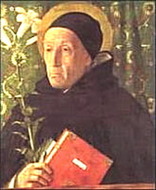LORD's Prayer 2
Dear All,
We worked this week with “Our” – the first word of the first sentence of the LORD’s Prayer: “Our Father, who art in heaven....”
Our short-term method is to trouble each word in the prayer so as to be able truly to pray it – that is, let the prayer come alive in its depths, and not merely think about it or believe it with normal consciousness.
We tried to include as many groups and individuals with us as we could in the “Our”: white and black, rich and poor, old and young, red and blue, all genders, ethnicities, orientations, nationalities. Then we included the mineral, vegetable and animal kingdoms. And the dead. And spirits of all kinds: angels, elementals, and so on. We reached our arms out to welcome in both the known and the unknown.
In fact, everyone is included in the “Our” who springs from the same Source. We considered if anything anywhere doesn’t come from that Source, and therefore wouldn’t be included in the “Our.” We considered also whom or what we each may in fact leave out of our prayers because of antipathy or alienation. Our embrace widened.
For next week, we’ll focus on the form of the prayer as 2nd person address. We speak to our own Source. This is an outrageous but universal privilege, the boldest democracy: that each of us can say “you” to the being who is Being itself, and so take part in a current, living conversation with the current, living origin.
We’ll place ourselves in this position of apostrophe or direct address, not trying to limit ourselves to a single term for that which we address, the very source of language and so beyond verbal characterization: Father, Mother, Source, Origin, Generative Mystery (David Spangler’s term), “Wonderful, Counseller, The mighty God, The everlasting Father, The Prince of Peace” (Isaiah 9:6). Rilke might have called God “Child,” since he felt it was up to us to help birth and mature the developing realms of divinity through our creative engagements. Whatever words or images might nudge us along heuristically, we dare to speak to that common origin, that Who who continues to radiate right through us from before the distinction between “who” and “what.”
All blessings to all,
Michael



